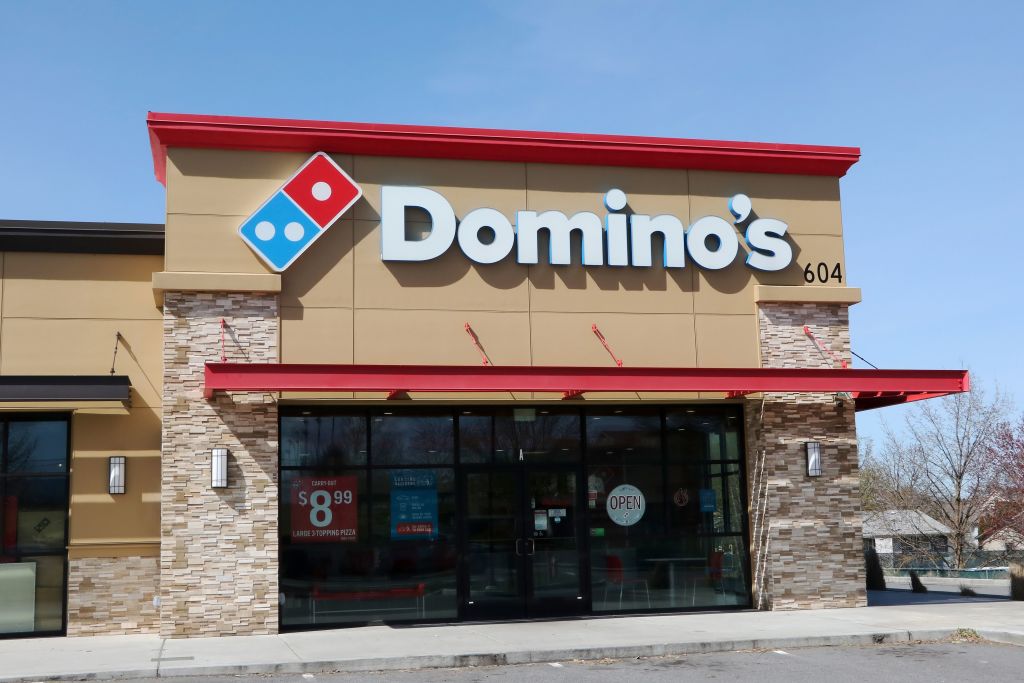Best Retirement Stocks for Income Investors in the Golden Years
The best retirement stocks ideally have attractive dividends that can be sustained. This can lead to steady income and long-term value for retirees.


Profit and prosper with the best of Kiplinger's advice on investing, taxes, retirement, personal finance and much more. Delivered daily. Enter your email in the box and click Sign Me Up.
You are now subscribed
Your newsletter sign-up was successful
Want to add more newsletters?

Delivered daily
Kiplinger Today
Profit and prosper with the best of Kiplinger's advice on investing, taxes, retirement, personal finance and much more delivered daily. Smart money moves start here.

Sent five days a week
Kiplinger A Step Ahead
Get practical help to make better financial decisions in your everyday life, from spending to savings on top deals.

Delivered daily
Kiplinger Closing Bell
Get today's biggest financial and investing headlines delivered to your inbox every day the U.S. stock market is open.

Sent twice a week
Kiplinger Adviser Intel
Financial pros across the country share best practices and fresh tactics to preserve and grow your wealth.

Delivered weekly
Kiplinger Tax Tips
Trim your federal and state tax bills with practical tax-planning and tax-cutting strategies.

Sent twice a week
Kiplinger Retirement Tips
Your twice-a-week guide to planning and enjoying a financially secure and richly rewarding retirement

Sent bimonthly.
Kiplinger Adviser Angle
Insights for advisers, wealth managers and other financial professionals.

Sent twice a week
Kiplinger Investing Weekly
Your twice-a-week roundup of promising stocks, funds, companies and industries you should consider, ones you should avoid, and why.

Sent weekly for six weeks
Kiplinger Invest for Retirement
Your step-by-step six-part series on how to invest for retirement, from devising a successful strategy to exactly which investments to choose.
Retirees should try to ensure that their stock portfolio can outperform inflation. That means picking companies that can afford to make their dividend payments from their free cash flow (FCF). In addition, companies with high free cash flow margins tend to have good upside potential. This article will discuss five of the best retirement stocks that have these qualities and can provide income to investors in their golden years.
First, a word of caution: Retirees should avoid investing in stocks with high dividend yields that have had (and will likely continue to have) lackluster performance. This could easily happen if the company has difficulty generating the necessary free cash flow to not only cover the dividend but also provide for growth. As a result, a retiree's portfolio will struggle to outperform inflation.
For example, look at AT&T (T) stock, a common stock many folks chose to buy because of its dividend. True, it's had a good yield over the past five years, averaging well about 6.4%. But the stock price performance has dithered. It's fallen from about $23 per share in April 2019, to roughly $19 in June 2024 – a more than 17% decline.
Even after accounting for the spinoff of Warner Bros. Discovery (WBD) – trading at about $7 per share as of June 27 – AT&T hasn't made up the difference to shareholders because the spinoff provided only 24 shares of WBD for every 100 shares in T stock. So, effectively, the spinoff value has been only worth about $1.68 in added value (i.e., 24% x $7) based on WBD's current share price. On top of this, AT&T cut its dividend payment to shareholders.
The point is that investing in a well-known stock with a high yield isn't always a good retirement strategy. It's important to pick high-quality companies that can afford to cover their dividend from free cash flow and that have good upside potential.
How we chose the best retirement stocks to buy
We kept that guideline in mind when seeking out the best stocks to buy that can provide income to retirees in their golden years. The companies that retirees should hold over the next five years or so should have ample free cash flow.
The five retirement stocks we highlight below have 10 years or more of dividend growth. However, the company's free cash flow is enough to cover the dividend cost over the last year. Moreover, each company has high and consistent free cash flow margins. Their stocks tend to have good upside based on analysts' price targets.
Ideally, the company will also have a history of buying back its stock. That way, these stocks can outperform inflation on a total return basis, (i.e., dividends plus potential upside).
With that in mind, here are the five best retirement stocks to buy now.

Visa
- Market value: $528.2 billion
- Dividend yield: 0.8%
- Years of consecutive dividend growth: 15
Visa (V) is a data network company – not necessarily a credit card company as many call it – that sells its payment processing network to debt, credit card and other payments companies. In 2023, it generated revenue by taking a small cut from over $213 billion in payment transactions.
The company has few capital expenditures, so it can generate a large amount of free cash flow because, as economies grow, the volume of payments Visa processes will keep rising. In fact, with higher inflation, the value of its cut from transactions rises as well.
As a result, in the trailing 12 months (TTM) ended March 31, the company generated $19.7 billion in free cash flow. That FCF represented an astounding 57.8% of its $34.4 billion in TTM revenue over the same period.
That's one of the highest FCF margins in the Fortune 500, if not the highest. In other words, Visa is a true cash cow. It allows the company to easily cover its dividend payments to shareholders.
For example, during the six months ending March 31, the company reported that its operating cash flow was $8.152 billion, and spending on capital expenditures (capex) was just $548 million. That left $7.6 billion in cash flow "free" to be spent on dividends and buybacks. Visa paid out $2.12 billion of that in dividends and most of the rest on stock buybacks. By doing so, dividends were only 30% of its FCF, allowing Visa to buy back shares, which helps push up its stock price.
The bottom line is that analysts now project higher target prices for V stock. For example, S&P Global Market Intelligence's survey of 38 analysts has an average $308.12 price target, nearly 16% above current levels, and AnaChart, a new sell-side analyst tracking service, says the average price target of 27 analysts is $310.68, +16.5%. Moreover, using a 3% yield metric with a projected $22 billion in FCF in the next 12 months could push the stock's value to over $734 billion, or more than 30% higher than its current valuation.
In other words, despite Visa's low dividend yield, retirees can benefit from investing in this blue chip stock knowing that its value is much higher than today's price.

Microsoft
- Market value: $3.32 trillion
- Dividend yield: 0.7%
- Years of consecutive dividend growth: 19
Microsoft (MSFT) is a global company with a huge market share in personal computer software. And it's gaining ground in enterprise and software services through its Azure cloud computer platform. Moreover, the company is angling to benefit from the market's interest in artificial intelligence (AI) applications.
As a result, Microsoft is a veritable cash cow with free cash flow margins that typically approach or exceed 30% of sales. For example, in the nine months ending March 31, it generated $81.35 billion in operating cash flow and had $30.6 billion in capex spending, leaving $50.75 billion in free cash flow. Representing 28% of Microsoft's $180.4 billion in year-to-date revenue, that FCF could be spent on dividends and buybacks, which was more than enough to cover the $13 billion in dividends payments as well as $16.1 billion in share repurchases over that nine-month period.
Based on analysts' revenue estimates, it's likely that Microsoft stock has solid upside potential. For example, analysts now project $280 billion in sales for its next fiscal year, a 14% improvement over the $245 billion they are anticipating this fiscal year. Using a 28% FCF margin, we can expect Microsoft to easily generate $78.6 billion in free cash flow in fiscal 2025. Therefore, using a 1.5% FCF yield metric means that its market value could rise to over $5 trillion from its present $3.3 trillion market cap (i.e., $78.6 billion in FCF/0.015 FCF margin). In other words, MSFT stock has over 70% upside in the next two or more years.
Analysts agree that MSFT looks undervalued. The average price target of 48 analysts surveyed by S&P Global Market Intelligence is $490.11 – roughly 10% above current levels. This is why income investors seeking out the best retirement stocks should stick with high free cash flow gushers like Microsoft. They tend to significantly outperform inflation over the longer term, both in terms of higher dividends and stock price gains.

Lockheed Martin
- Market value: $111.2 billion
- Dividend yield: 2.7%
- Years of consecutive dividend growth: 21
Lockheed Martin (LMT) is a highly profitable aeronautics, defense and space technology company. Given the strong U.S. defense budget, the company has consistent and strong free cash flow with over $159 billion in backlog orders.
For example, the company reported that its free cash flow in Q1 2024 was $1.257 billion on $17.195 billion in sales, or a margin of 7.3% ($1.257 billion in FCF/$17.195 billion in sales). Moreover, Lockheed is very confident about its revenue and FCF in its guidance to analysts. The company expects to make between $6 billion and $6.3 billion in free cash flow this year on $68.5 billion to $70 billion in revenue, yielding a FCF margin of 8.6% to 9.2%. The takeaway? The company is very optimistic about its outlook.
Given that its dividend costs only about 62% of its FCF, the company can easily afford to increase it over time. In fact, Lockheed has raised its dividend per share every year for the past 21 years.
Moreover, analysts are bullish about its future. For one, LMT is a cheap stock for investors, trading at 17 times and 18 times earnings for this year and next, respectively. In addition, using a 9% FCF margin estimate based on analysts' forecasts of $72.2 billion next year results in a projected FCF of $6.5 billion. So, theoretically, if the company paid out 100% of this as a dividend, the stock would likely have at least a 4.0% dividend yield. That possibility implies its market cap would rise by 44% to $162.5 billion (i.e., $6.5 billion/0.04) from $111 billion today.
In other words, over the next two years, LMT stock could hypothetically rise between 22% and 44% based on the company's strong free cash flow and FCF margins. In addition, its buyback program could push LMT stock higher. Investors seeking out the best retirement stocks to provide income in the golden years can rest assured that Lockheed can afford its dividend. As such, it's one of the best investments a retiree could make in the stock market.

Chevron
- Market value: $286.1 billion
- Dividend yield: 4.2%
- Years of consecutive dividend growth: 37
Chevron (CVX) is a massive oil and gas company that generates large amounts of free cash flow. For instance, in 2022, Chevron generated almost $38 billion in FCF, and in Q4 2023 it made $8.1 billion in FCF, representing over 17% of its $47.2 billion in revenue, a high FCF margin.
This influx of cash allowed Chevron to raise its dividend in 2024 by 8% to $6.52 per annum, giving the stock a 4% dividend yield. The company can easily afford this dividend because analysts project $200 billion in sales this year. Using a 17% FCF margin, the company could generate $33.8 billion in FCF. The new dividend will cost only about $12 billion of the projected $33.8 billion in anticipated free cash flow or just 36% of the total FCF.
Chevron also plans to repurchase $75 billion of its stock. The program could allow the company to spend up to $20 billion annually, higher than the $14.9 billion it spent on buybacks in 2023. Such a result represents a potential buyback yield of 7% of its $286 billion market value.
In addition, Chevron is one of the best dividend stocks for dependable dividend growth, having hiked its payout annually for the past 37 years. Given its strong free cash flow generation, the company can easily continue those increases.
Moreover, analysts have higher projected price targets as the company's FCF keeps growing, making CVX one of the best retirement stocks to buy for the long term.

Domino's Pizza
- Market value: $18.0 billion
- Dividend yield: 1.2%
- Years of consecutive dividend growth: 10
Domino's Pizza (DPZ) is the largest pizza company in the world. It generates significant and consistent amounts of free cash flow at high margins that make the stock attractive to retirees.
For example, in 2023, the company generated 10.8% FCF margins, up from 8.6% the year before. In Q1 2024, it did the same, producing $103.3 million in FCF on $1.085 billion in sales, or 9.5% of sales.
Moreover, analysts forecast that sales could rise by 7% in fiscal 2025 to $5.16 billion. So, assuming a 10% FCF margin, its FCF could exceed $516 million in the next 12 months. That gain would be 6.3% higher than the $485.5 million in FCF it made in 2023.
Also implied: using a 2.0% FCF yield metric (i.e., $516 million/0.02), DPZ stock could end up with a market cap of around $25.8 billion. That's 43% higher than its present market cap of $18 billion, or a price target of $740 per share. In other words, over the next two years, the stock has the potential to rise more than 20% each year.
And don't forget that its dividend only costs about $211 million, well below the $500 million in free cash flow that DPZ generates. That leaves plenty of room for dividend hikes and share buybacks.
These projections are based on the company's normal revenue growth and FCF margins. Analysts tend to agree with this assessment. The average price target of the 34 analysts following the consumer discretionary stock tracked by S&P Global Market Intelligence is $545.16, or roughly 6% above current levels. In other words, DPZ is one of the best retirement stocks for investors looking for consistent income from their equity portfolio.
Related content
Profit and prosper with the best of Kiplinger's advice on investing, taxes, retirement, personal finance and much more. Delivered daily. Enter your email in the box and click Sign Me Up.

Mark R. Hake, CFA, is a Chartered Financial Analyst and entrepreneur. He has been writing on stocks for over six years and has also owned his own investment management and research firms focused on U.S. and international value stocks, for over 10 years. In addition, he worked on the buy side for investment firms, hedge funds, and investment divisions of insurance companies for the past 36 years. Lately, he is also working as Chief Strategy Officer for a tech start-up company, Foldstar Inc, based in Princeton, New Jersey.
-
 How Much It Costs to Host a Super Bowl Party in 2026
How Much It Costs to Host a Super Bowl Party in 2026Hosting a Super Bowl party in 2026 could cost you. Here's a breakdown of food, drink and entertainment costs — plus ways to save.
-
 3 Reasons to Use a 5-Year CD As You Approach Retirement
3 Reasons to Use a 5-Year CD As You Approach RetirementA five-year CD can help you reach other milestones as you approach retirement.
-
 Your Adult Kids Are Doing Fine. Is It Time To Spend Some of Their Inheritance?
Your Adult Kids Are Doing Fine. Is It Time To Spend Some of Their Inheritance?If your kids are successful, do they need an inheritance? Ask yourself these four questions before passing down another dollar.
-
 The 4 Estate Planning Documents Every High-Net-Worth Family Needs (Not Just a Will)
The 4 Estate Planning Documents Every High-Net-Worth Family Needs (Not Just a Will)The key to successful estate planning for HNW families isn't just drafting these four documents, but ensuring they're current and immediately accessible.
-
 Love and Legacy: What Couples Rarely Talk About (But Should)
Love and Legacy: What Couples Rarely Talk About (But Should)Couples who talk openly about finances, including estate planning, are more likely to head into retirement joyfully. How can you get the conversation going?
-
 How to Get the Fair Value for Your Shares When You Are in the Minority Vote on a Sale of Substantially All Corporate Assets
How to Get the Fair Value for Your Shares When You Are in the Minority Vote on a Sale of Substantially All Corporate AssetsWhen a sale of substantially all corporate assets is approved by majority vote, shareholders on the losing side of the vote should understand their rights.
-
 Dow Leads in Mixed Session on Amgen Earnings: Stock Market Today
Dow Leads in Mixed Session on Amgen Earnings: Stock Market TodayThe rest of Wall Street struggled as Advanced Micro Devices earnings caused a chip-stock sell-off.
-
 How to Add a Pet Trust to Your Estate Plan: Don't Leave Your Best Friend to Chance
How to Add a Pet Trust to Your Estate Plan: Don't Leave Your Best Friend to ChanceAdding a pet trust to your estate plan can ensure your pets are properly looked after when you're no longer able to care for them. This is how to go about it.
-
 Want to Avoid Leaving Chaos in Your Wake? Don't Leave Behind an Outdated Estate Plan
Want to Avoid Leaving Chaos in Your Wake? Don't Leave Behind an Outdated Estate PlanAn outdated or incomplete estate plan could cause confusion for those handling your affairs at a difficult time. This guide highlights what to update and when.
-
 I'm a Financial Adviser: This Is Why I Became an Advocate for Fee-Only Financial Advice
I'm a Financial Adviser: This Is Why I Became an Advocate for Fee-Only Financial AdviceCan financial advisers who earn commissions on product sales give clients the best advice? For one professional, changing track was the clear choice.
-
 Nasdaq Slides 1.4% on Big Tech Questions: Stock Market Today
Nasdaq Slides 1.4% on Big Tech Questions: Stock Market TodayPalantir Technologies proves at least one publicly traded company can spend a lot of money on AI and make a lot of money on AI.
